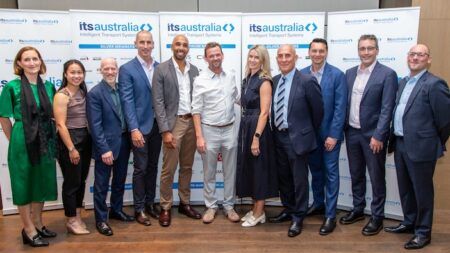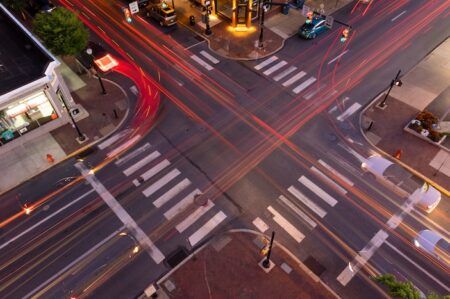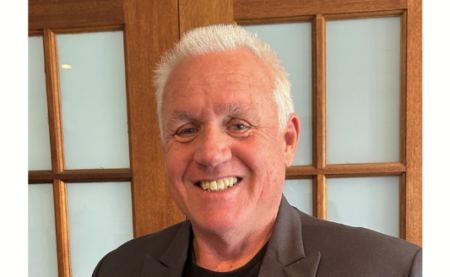A successful inner-city renewal initiative in Argentina’s capital, Buenos Aires, has been awarded the International Transport Forum’s (ITF) Transport Achievement Award.
With over three million inhabitants and another three million commuting into the city each day, traffic in Buenos Aires’ downtown area, known as ‘Microcentro’, frequently came to a standstill, with the area becoming a polluted, hostile environment. To change this, the Transport Authority of Buenos Aires, in cooperation with the national government and local stakeholders, implemented Argentina’s first comprehensive urban renewal program in which the inner-city space was reconfigured hand-in-hand with the available mobility options. At the heart of the initiative is a pedestrian priority area, complemented by a new metrobus corridor. A total of 86 blocks in the Microcentro are now restricted for cars and fitted with license plate recognition (LPR) technologies. Sidewalks were extended to create shared spaces, additional bicycle lanes and 29 new bicycle sharing stations were built.
Simultaneously, a new metrobus corridor was created on the Avenida 9 de Julio, the major north-south thoroughfare adjoining the Microcentro. The Bus Rapid Transit (BRT) provides high-capacity public transport as an alternative to car travel into the city center. As a result, the number of cars entering the Microcentro has dropped by almost 86%, from more than 15,000 to just over 2,121 every day. The metrobus 9 de Julio, used by 11 bus lines carrying 255,000 people every day, cuts average travel time along the 1.8 mile (3km) long corridor by 50% in peak hours. Carbon dioxide emissions from traffic have been cut by 5,612 metric tons per year. The metrobus system has become a flagship for mobility policies in Argentina, with the national government now expanding the scheme to other cities. In the past 16 months, three new corridors have been implemented in Santa Fe, Rosario and La Matanza, with another seven cities to get corridors soon.
The ITF Jury praised the Metrobus 9 de Julio project as, “A good example of an effective cooperative framework that brings together different transport stakeholders, including national government, the municipality and transport operators, in a project that has a high potential to be reproduced elsewhere.”
Juanjo Mendez, secretary for transport in Buenos Aires, said, “Metrobus and Microcentro were designed in a holistic project that took into consideration the city’s downtown, improving mobility and road safety, and renovating public space. The positive outcomes led citizens to change how they choose to commute around the city.”




